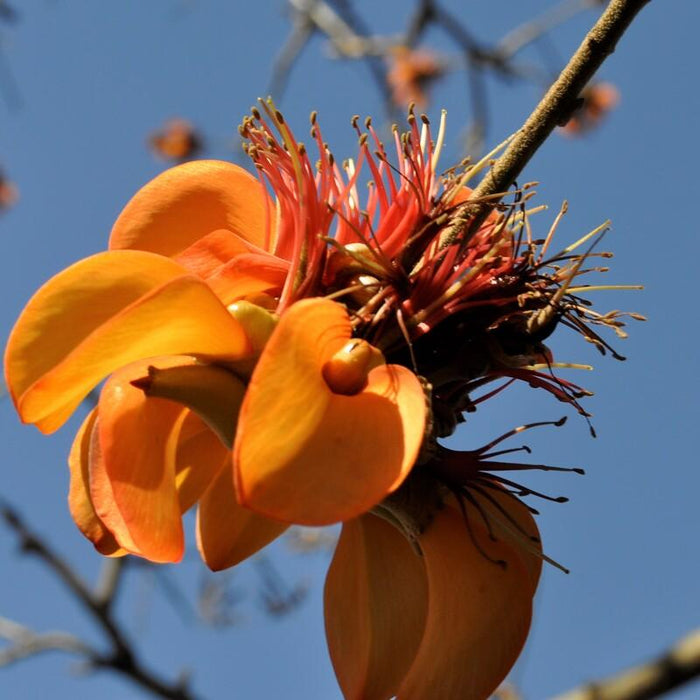
WiliWili Potted Plant GIft ~ Native to Hawaii
Traditional Hawaiian chants have warned about an increased risk of shark bites in the fall, when the wiliwili tree blooms.
Wiliwili was the desired wood for early Hawaiian surfboards. This large, dryland tree has showy flowers from a light cream to a bright orange. Trees will drop all leaves before flowering, creating quite the colorful display. You may only be able to fit one on your site, but this iconic tree is a sight to see.
Wiliwili (Erythrina sandwicensis) is a species of flowering tree in the pea family, Fabaceae, that is endemic to the Hawaiian Islands. ... Wiliwili means "repeatedly twisted" in the Hawaiian language and refers to the seedpods, which dehisce, or twist open, to reveal the seeds.
Four sisters once lived in Ka‘u on the Big Island. The first, Moholani, was very beautiful. However, the second sister was bald, the third was humpbacked, and the fourth had ragged, wind-tossed hair. Moholani married and had a son who was given to the gods to raise. One day Moholani’s husband was lured out to sea by sirens. Frantically, Moholani asked her sisters to help her find her husband. But they refused, calling him worthless. This aroused the wrath of Moholani’s son who sent lighting to transform the sisters into trees. The bald sister became a tree with few leaves, the humpbacked sister a tree with gnarled branches, and the sister with wind-tossed hair a tree with leaves that flutter in the wind. Chastened, Moholani’s husband returned, never to stray again. And, according to legend, this is how the wiliwili came to be. (Taken from Majesty The Exceptional Trees of Hawaii, 1982.)
This is just one of many mo‘olelo (stories) concerning this commonly-known and useful tree. The lightweight wood was fashioned into long surfboards, canoe parts such as ama, and floats for fishnets. The seeds are still strung into colorful lei.

